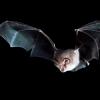Risk of prostate cancer is about 75% higher, and more than twice as deadly, in men of African ancestry compared with men of European ancestry.

Yet men of European ancestry are often overrepresented as research participants, making these differences difficult to understand and address.
A study has now been published that brings together data from the majority of genomic prostate cancer studies globally.
Including more than 200,000 men of European, African, Asian and Hispanic ancestry from around the world, the study is the largest, most diverse genetic analysis ever conducted for prostate cancer – and possibly for any other cancer.
The study’s authors identified 86 new genetic variations that increase risk for prostate cancer, not previously discovered, bringing the total number of risk loci for prostate cancer to 269.
Applying a model for assessing prostate cancer risk based on the interplay of these genetic factors, the researchers showed that men of African ancestry inherit about twice the prostate cancer risk on average compared with men of European ancestry, while men of Asian ancestry inherit about three-quarters the risk of their white counterparts – evidence that genetics play some part in the differences in how often cancer occurs in different racial groups.
This research is also a step toward applying precision medicine to early detection.




